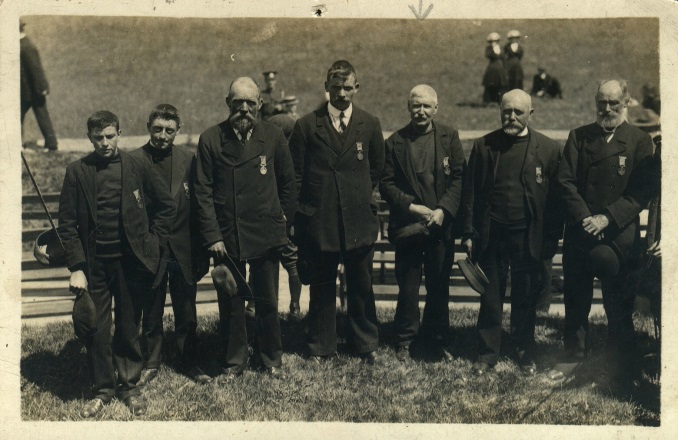
The sinking of the luxurious liner Lusitania in just eighteen minutes off the Old Head of Kinsale in Ireland in 1915 by a German submarine resulted in the loss of 1,198 lives, but one of the first rescue vessels on the scene was a small Manx fishing boat PL11 Wanderer, from Peel on the west coast of the Isle of Man.
It was to be two hours before rescuers heading from the Irish mainland reached the scene, but the crew of the twenty ton lugger, Wanderer, fishing a few miles off Kinsale, with 800 mackerel on board, was alerted by Thomas Woods, after he saw the Lusitania listing. Steering the vessel, Woods was alone on deck, on watch, having sent little Johnny Macdonald below to make tea. The skipper of the Wanderer, Stanley Ball from Jurby, is reported to have said to Woods ‘Go for her, be British’.
Undeterred by the danger of enemy submarines, these brave Manxmen headed for the scene of the incident, and were soon within a quarter of a mile of the Lusitania; witnessing the horrifying spectacle of hundreds of people, many badly burned, fighting for their lives in the sea.
The crew of the Wanderer hauled on board 160 men, women and children, including a two month old baby, but others were clinging on to the sides of the vessel pleading for help; its heavy load pulling the boat low into the water.
As they sailed towards the Old Head of Kinsale, with fine weather and a calm sea, towing two lifeboats besides, the skipper and crew of the Wanderer offered comfort to the survivors with clothes, blankets, food and drink.